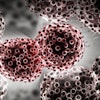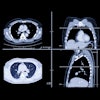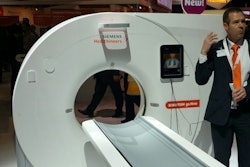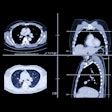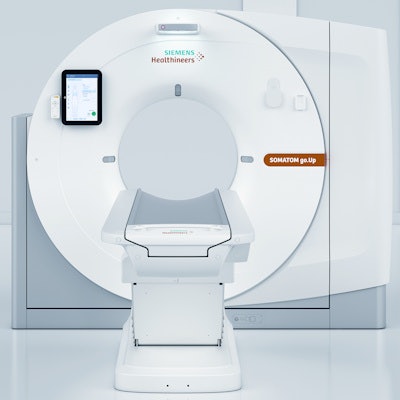
Siemens Healthineers is launching a new line of value-based CT scanners at this week's RSNA 2016 meeting in Chicago. Called Somatom go, the systems are novel in that scanner functions can be controlled using a tablet computer, freeing technologists from the operator's console and creating a more mobile workflow.
The new systems include Somatom go.Now, a 32-slice scanner, and Somatom go.Up, a 64-slice model. Both are being displayed as works-in-progress at RSNA 2016, as they are pending 510(k) clearance from the U.S. Food and Drug Administration (FDA). Siemens expects to begin shipments in the second quarter of 2017.
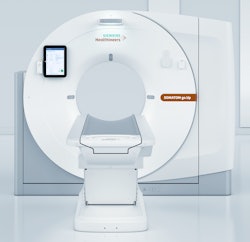 Siemens is launching the Somatom go.Up scanner at this week's RSNA 2016 meeting. Image courtesy of Siemens.
Siemens is launching the Somatom go.Up scanner at this week's RSNA 2016 meeting. Image courtesy of Siemens.Siemens began the development process for the Somatom go line by soliciting feedback from more than 500 customers across 11 countries. The company's goal was to find the "pain points" that made CT operations more difficult, according to Christiane Bernhardt, global head of sales and marketing for CT at Siemens Healthineers. Siemens then shaped its development of the go scanners to meet these issues.
Despite the wide variety of the company's customer base, the research showed commonalities in issues faced by customers, including reimbursement cuts; staff training, education, and retention; and how to deliver better clinical outcomes at a lower cost, Bernhardt said. Another major issue was scanner operating costs, she said.
Siemens has addressed these issues with several advancements found in the Somatom go line, the most notable of which is the tablet concept. Both of the go scanners are available with an HP tablet that duplicates the controls previously found only on the operator's console. The tablet enables what the company calls mobile workflow, in which the technologist is freed from being tied to the console and can move around in the scanning room, keeping in close proximity to the patient while controlling scanner functions.
The tablet includes several functions that support efficient operation:
- Scan and go: Enables the registration of patients and the selection of different scanning programs; also allows users to start the scan topogram and view its results
- Check and go: Lets operators confirm that the scan range is correct and that the entire organ is within the scanning volume
- Recon and go: Supports image reconstruction and the transfer of data to both the table and the console
- View and go: Enables users to view reference images on the table for quality assurance (the tablet does not support diagnostic review)
The mobile workflow possible with the Somatom go platform should give users more flexibility in siting the system and creating the opportunity for lower operating costs, according to Bernhardt. For example, there is no longer the need for a dedicated operator's room, as the scanner can be controlled at tableside, thus saving siting costs. Thanks to the tablet, technologists can simply retreat behind a radiation-shielded wall or partition during the scan rather than leave the room entirely.
"You can place your system wherever you like in the hospital or imaging center," Bernhardt said. "You have much more flexibility as a user."
To address other concerns about operating costs, Siemens has developed a new service package called the Healthineers Connect Plan. The plan is included in the purchase price of all Somatom go scanners and covers equipment maintenance, support, and education. It enables customers to begin training before the scanner is installed and then after installation, and it includes ongoing web-based training to educate staff in new applications or to get new staff, who may have been hired after scanner installation, up to speed.
Both of the scanners in the Somatom go line use the Stellar detector technology found on Siemens' more advanced CT systems, as well as the same tin filter used for radiation dose reduction. They also support sinogram-affirmed iterative reconstruction (SAFIRE), the company's iterative reconstruction-based dose reduction protocol, and Care Dose4D real-time anatomic exposure control.
Siemens will also make available clinical packages previously found only on higher-end systems, such as its CT lung cancer screening package and CT angiography. But, ultimately, the company believes that based on its testing, the tablet-based operation is what will set the go scanners apart.
"The feedback was really outstanding," Bernhardt told AuntMinnie.com. "The more they use it, the more they love it."


